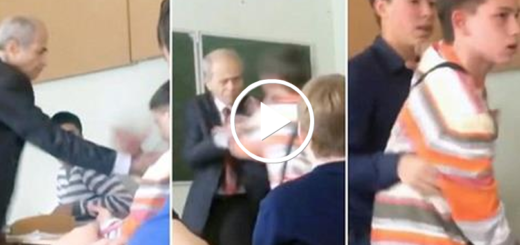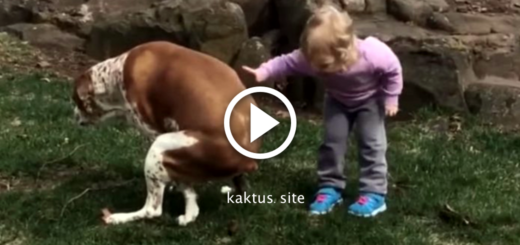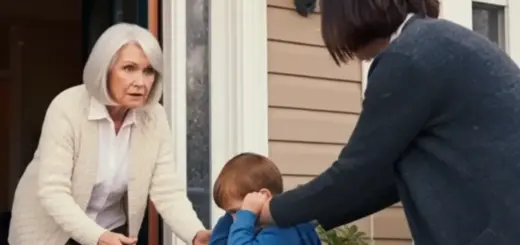He calmed down. Not happy, but less frantic. He’d sit in the living room with me while I read. He’d eat meals without pushing the plate away.
On Christmas Eve, I made sugar cookies. Ethan didn’t help, but he sat at the table and watched me cut shapes. The kitchen smelled like vanilla and butter.
The phone rang. I grabbed it, hoping. «Rachel?»
«Mom.»
Her voice was flat. Tired.
«Rachel, thank God. When are you coming to get him? He needs you. I need to know.»
«I can’t do this anymore, Mom.»
I stopped moving. «What?»
«He’s yours. I tried. I really tried. But I can’t.» Her voice cracked. «I just can’t.»
«Rachel, wait.»
The line went dead. I called back. It rang and rang. No answer. I tried again. Voicemail.
I stood there in the kitchen with the phone in my hand. The cookies were burning in the oven, smoke starting to curl up. I turned off the oven and pulled out the tray. The cookies were black.
I sat down on the floor. Just sat there with my back against the cabinet.
Ethan appeared in the doorway. He looked at me for a long moment, longer than he’d ever looked at me before. Then he walked to the counter, picked up the yellow cup I’d given him that first day, and brought it to me.
He set it on the floor beside me. I looked at the cup. Looked at him. He went back to the living room.
I cried sitting there on the kitchen floor with a burnt cookie sheet and a yellow plastic cup.
The years after that blurred together. I kept everything exactly the same for Ethan. Same breakfast every morning: eggs and toast. Same route everywhere we went. Same bedtime. Same routine. Same everything.
When I kept it consistent, he was okay. Not happy, maybe, but okay.
When he turned six, he became obsessed with a set of magnetic letters I’d bought him. He’d arrange them on the refrigerator for hours. Not words, but patterns, groups, sequences I couldn’t understand.
Then he started drawing symbols in little notebooks from the dollar store. Circles. Lines. Tick marks. Tracking something only he understood.
At therapy, I asked about it. «He makes these marks everywhere. Should I be worried?»
The therapist, a patient woman named Dr. Lin, shook her head. «He’s tracking his world. It helps him feel secure. Let him do it.»
So I did. He filled notebook after notebook with his symbols and marks.
By the time he turned seven, the symbols became letters, then short words. Egg. Toast. School. Home. Simple things, but written in neat block letters.
At eight, he was writing full sentences. Times. What he ate. Where we went. What happened.
He learned to make eye contact sometimes, little flickers. He learned to tolerate the grocery store if we went at the same time every week. He learned that I wasn’t going to leave, wasn’t going to change things without warning.
One morning in spring when he was eight, I was making breakfast. Eggs, toast, same as always. Ethan sat at the table with his notebook, writing something.
«Why did Mom leave?»
I nearly dropped the spatula. I turned around. Ethan was looking at his notebook, not at me, but he’d spoken. Three years of mostly silence, then single words, and now this. A full sentence. A question.
I sat down across from him. «She said she couldn’t handle it.»
He nodded once. Wrote something in his notebook. Went back to staring at the page.
I got up, finished making breakfast, and put his plate in front of him. Then I went to the bathroom and cried where he couldn’t hear me. He’d spoken. He’d asked the question I didn’t know how to answer.
But I told him the truth. That’s all I could do. The truth. And eggs and toast every morning. And the same yellow cup. That’s what I had to give him. It would have to be enough.
A year after Ethan first spoke to me, the school called with a problem. It was September 2014. Ethan was nine, starting fourth grade. I thought we’d moved past the hardest parts. He was talking in full sentences now, eating in the cafeteria without meltdowns, even raising his hand in class sometimes.
Progress. Then Principal Andrews wanted to move him.
«Mrs. Cooper. We need to discuss Ethan’s placement,» he said over the phone. New teacher this year, Mrs. Brennan, who’d seemed kind at orientation. I’d been hopeful.
«What’s the problem?» I asked.
«Ethan would be better served in our special needs classroom. The other students are moving at a different pace.»
I gripped the phone. «Ethan keeps up with the work.»
«It’s not about academics. It’s about behavior. He doesn’t participate in group activities. He won’t make eye contact during circle time. Yesterday, he covered his ears during music class.»
«Because it’s loud. He has sensory issues.»
«Mrs. Cooper. We have a program designed for children like Ethan. It would be less stressful for everyone.»
Less stressful for the teacher, he meant.
«I want an IEP meeting,» I said.
«We can arrange that. But…»
«This week.»
Silence. Then: «I’ll have my secretary call you.»
I spent three days preparing. I printed every report card, every therapy progress note, every piece of documentation I’d kept in folders. Ethan’s reading was above grade level, his math was two years ahead, his handwriting was careful and neat, every letter perfectly formed.
The problem wasn’t that he couldn’t learn. The problem was that he learned differently.
The meeting was on a Friday afternoon. Conference room at the school. Too bright. Fluorescent lights humming. Principal Andrews sat at the head of the table. Mrs. Brennan next to him. School psychologist. Special education coordinator. All of them with folders.
I had one folder. But it was thick.
«Thank you for coming, Mrs. Cooper,» Principal Andrews said. «We want what’s best for Ethan.»
«So do I.»
Mrs. Brennan spoke first. Soft voice, sympathetic smile. «Ethan is a sweet boy. But he struggles socially. He doesn’t interact with peers. During group work, he sits alone. He refuses to participate.»
«Does he do the work?» I asked.
She hesitated. «Yes. But education isn’t just about worksheets. It’s about learning to work with others, to communicate.»
«He’s autistic. Communication is harder for him. But he’s trying.»
The special education coordinator, a woman named Ms. Pierce, leaned forward. «Our resource room offers a smaller setting. Fewer distractions. Students who understand his challenges.»
«Students who can’t keep up academically,» I said. «That’s not Ethan.»
Principal Andrews used that principal voice. The one I recognized from my own decades in classrooms. Reasonable. Patient. Condescending. «We understand you want Ethan in a mainstream classroom. But we have to consider the needs of all students.»
«You’re telling me Ethan is disruptive,» I said.
«Not disruptive, exactly.»
«Then what’s the problem?»
Ms. Pierce opened her folder. «Ethan’s social skills assessment shows significant delays. His IQ testing was inconclusive. He refused to finish several sections.»
«Because they were timed, and that made him anxious. His therapist documented that.»
«Which brings us back to our point,» Principal Andrews said. «Ethan needs support we can’t provide in a regular classroom.»
I opened my folder and pulled out the first document. «This is Ethan’s reading comprehension test from last month. 97%. 7th grade level.»
Next document. «Math assessment. 100%. 5th grade material.»
I kept pulling papers, stacked them in front of Principal Andrews. «These are therapy notes showing his progress in speech. In emotional regulation. In sensory tolerance. He’s come further in four years than anyone predicted. Not because he’s in a special room with low expectations. Because people believed he could do more.»
Mrs. Brennan looked uncomfortable. «It’s not about expectations…»
«Yes, it is. You want him somewhere else because he makes you uncomfortable. Because he doesn’t perform ‘normal’ the way you want ‘normal’ to look.»
The room went quiet. Principal Andrews cleared his throat. «Mrs. Cooper, I understand you’re frustrated. Under IDA, Ethan has the right to the least restrictive environment. That means a mainstream classroom with appropriate supports. Not segregation because he’s different.»
I shouldn’t have used that word. Segregation. But I was tired of being polite.
«We’re not suggesting segregation,» Ms. Pierce said quickly. «Just a more appropriate setting.»
«Then provide the supports in his current classroom. Noise-canceling headphones for music. Extra time for transitions. A quiet space if he gets overwhelmed. That’s accommodation, not removal.»
They looked at each other. Principal Andrews sighed. «We’ll draft an IEP with those accommodations,» he said finally. «But if Ethan continues to struggle…»
«He won’t.»
I didn’t actually know that. But I knew giving up on him wasn’t the answer.
That evening, I spread all the meeting notes across the kitchen table. I started organizing them into a three-ring binder. Color-coded tabs for medical, educational, therapy, legal. My hands knew this work from years in classrooms.
Ethan came in from the living room. He’d been watching his show. The same episode he watched every Friday. His yellow cup sat on the counter where he always left it. He stood watching me work.
«What are you doing?» he asked. His speech had grown stronger over the year. More fluid.
«Making sure the school can’t forget what you can do.»
He moved closer. Looked at the papers. «Can I help?»
I glanced at him. «Sure.»
We worked together for an hour. I showed him how I was organizing everything. He studied my system, then pointed to the therapy tab. «These should be sorted by date, then by type. Speech separate from occupational, separate from behavioral.»
I looked at where he was pointing. He was right. That made more sense.
«Show me,» I said.
He rearranged the entire section in 10 minutes. Created a system I wouldn’t have thought of. Logical and clean and perfect. I watched him work, his hands moving fast, completely focused.
He understood organization on a level I’d never reach. Pattern and structure, and order. It came naturally to him the way breathing came to other people.
«That’s really good, Ethan,» I said when he finished.
He nodded. Didn’t smile. But I could tell he was pleased.
The next year, when Ethan turned 10, his speech therapist suggested a tablet for communication support. Something to type on when speaking felt too hard. I saved up and bought him one for his birthday.
He had it figured out in a day. Within a week, he’d downloaded a scanning app. Started photographing every page of his notebooks. Creating digital copies. I watched him work, methodical and focused, preserving everything he’d ever written.
«Why are you doing that?» I asked.
«So I don’t lose it,» he said, not looking up from the screen.
At therapy group sessions for parents, the other mothers would ask me questions during coffee time. How did I get Ethan to cooperate? What was my secret? How did I handle the meltdowns?
«I don’t handle him,» I said. «I listen to him.»
One woman, Linda, whose son was 7 and nonverbal, shook her head. «But how do you stay so patient?»
I thought about that. «I guess I stopped trying to make him be someone else. I just try to understand who he is.»
She looked at me like I’d said something profound. But it wasn’t profound. It was just the only thing that worked.
Ethan started noticing patterns everywhere that year. We’d be driving and he’d say, «The traffic light on 4th Street is mistimed. It stays red 45 seconds longer than the others.» I had no idea if that was true.
At the grocery store, he’d look at the receipt and point out a pricing error. «The apples were marked wrong, 3 cents higher than the shelf tag.» He was right, every time.
Once, at a parent-teacher conference that fall, Principal Andrews smiled at me while explaining Ethan’s progress, but his eyes stayed flat. Cold.
In the car, Ethan said, «He doesn’t like me.»
«What? No, honey. He was being nice.»
«His face moved wrong. The smile didn’t match.»
I glanced at Ethan. He was staring out the window, expression blank. «What do you mean?»
«When people really smile, the muscles around their eyes contract. His didn’t. He was pretending.»
I drove in silence. Ethan was 10 years old, and he could read faces better than I could.
By the time he turned 11 and started 5th grade, I thought we’d found our rhythm. Then Mrs. Huang called me at work one afternoon.
«Mrs. Cooper. Ethan disrupted class today.»
My stomach dropped. «What happened?»
«I was teaching long division. Ethan stood up and corrected me. In front of everyone.»
«Was he right?»
Pause. «That’s not the point.»
«That’s exactly the point. Was he right?»
«Yes, but…»
«Then he was helping.»
«Mrs. Cooper. He embarrassed me. He needs to understand there’s a time and place.»
He’s 11. He sees a mistake, he corrects it. That’s how his brain works.
Another parent conference. Another stack of paperwork. This time, they wanted to label him «oppositional defiant.»
























































